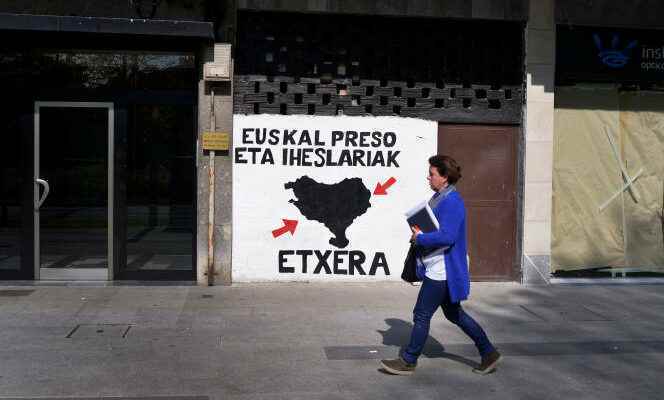Without official announcement or change of regime of the detainees, but with a clear political will on the part of the Spanish left-wing government, little by little, the prisoners of the former Basque terrorist group ETA are brought together in penitentiary establishments in the Basque Country and Navarre. If, previously, only repentants and prisoners without blood offenses were concerned, these movements now take place massively in Spain. On August 31, the Department of Penitentiary Institutions, dependent on the Ministry of the Interior, thus validated the transfer of 13 Etarra prisoners to the Basque Country, including two of the most bloodthirsty former leaders of the separatist organization.
Francisco Javier Garcia Gaztelu, alias Txapote, imprisoned since 2005, was sentenced to 30 years’ imprisonment for a dozen murders, including those of elected conservatives Miguel Angel Blanco in 1997 and Gregorio Ordoñez in 1995, and socialists Fernando Buesa (2000 ) and Fernando Mugica (1996). Frenchman Henri Parot, sentenced to 41 years in prison for 39 murders and around 20 attacks that caused nearly 200 victims, has been imprisoned since 1990. Among the 11 other detainees transferred to the Basque Country are other militants “ historical”, like Jon Bienzobas or Félix Alberto Lopez of Calle Gauna, alias Mobutu.
Eleven years after the end of armed activity and four years after the dissolution of ETA, this latest transfer brings to 98 the number of prisoners reconciled in the Basque Country and in Navarre since the arrival of the socialist Pedro Sanchez in power, in 2018. In 2011, when ETA announced the end of its armed activity, Spain had nearly 600 Etarra prisoners. There are 145 left, including a hundred in the Basque Country and Navarre. The others are held elsewhere in the country, most of them less than 200 kilometers from the Basque Country. In the summer of 2021, the last to be incarcerated in Andalusia – a remote region traditionally reserved for the toughest – were brought together, and there are only three of these prisoners left in Madrid. In addition, 17 people are imprisoned in France.
In fact, Spain thus consolidates the end of the policy of dispersion, set up in 1989 by the socialist government of Felipe Gonzalez as part of its anti-terrorist policy. The end of this exceptional regime has been demanded for a long time by the Basque nationalist parties, who consider it a punishment for families. These, grouped within the Etxerat or Sare associations, still regularly organize demonstrations for the rapprochement of prisoners.
You have 46.92% of this article left to read. The following is for subscribers only.
